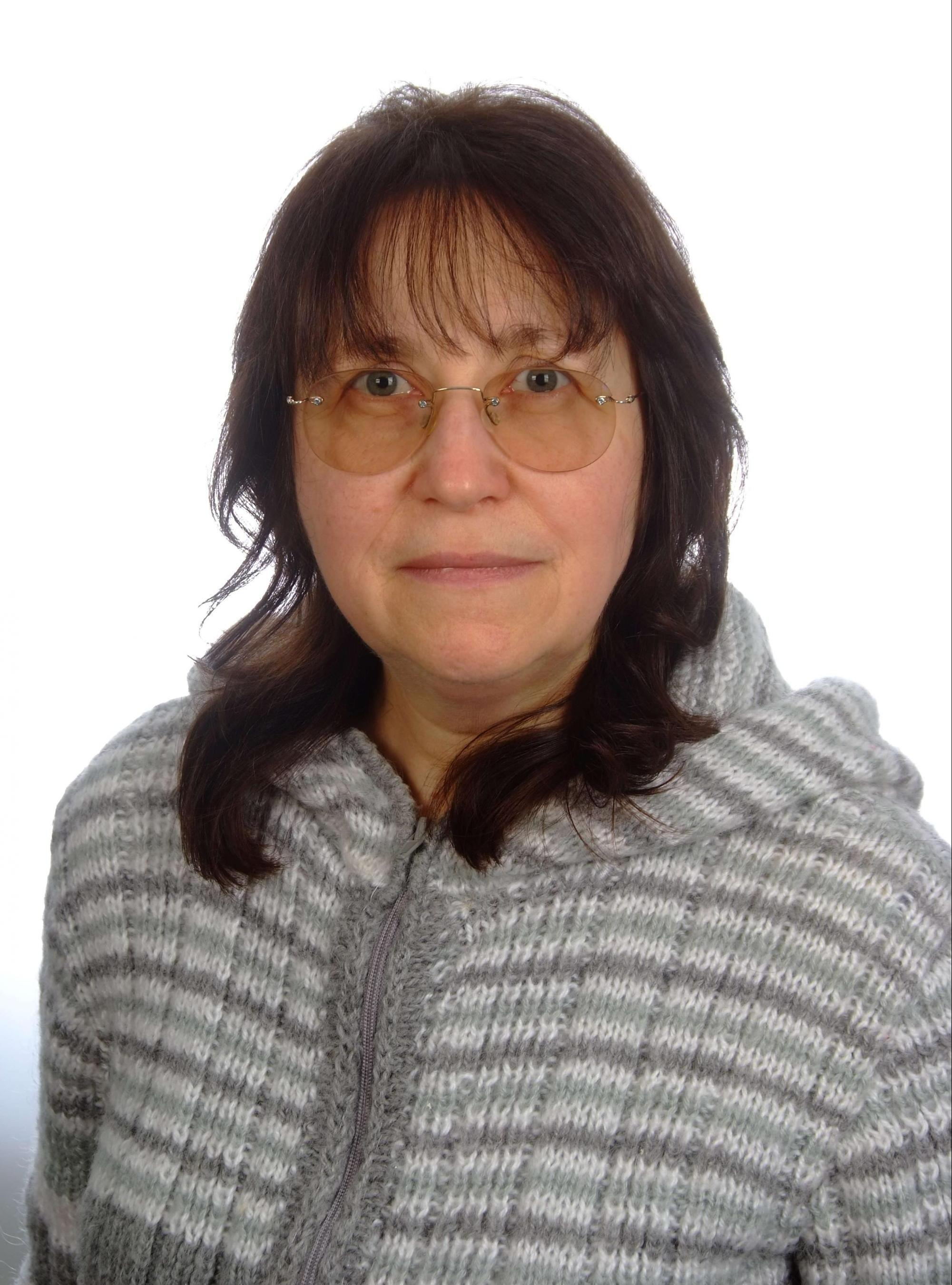Research
Quantum and nonlinear optics.
Radiation defects in semiconductors.
Materials engineering.
Material characterization methods and growth techniques.
Metamaterials.
Self formation structures.
Participation in scientific projects:
- LMA (Lithuanian Academy of Science) project "Study of radiation defects in Si structures”, the leader J.V.Vaitkus (2018-2021).
- LMT (Research Council of Lithuania) project “Spectrally and Temporally Resolved Absorption and Photoluminescence Electro-optic Recorder” (2019-2022), leader Patrik Scajev, estimate 150 thousand EUR.
- LMT project “Development of a wide-spectrum dosimetry prototype system for multi-purpose radiation monitoring” (2018-2020), leader Eugenijus Gaubas, estimate 700 thousand EUR.
- LMT project “Ionizing radiation, non-contact and remote detection technology center” (2018-2020), leader Eugenijus Gaubas, estimate: 1 million EUR.
- LMT project " Quantum and Nonlinear Optics with Rydberg-State Atoms” the leader Julius Ruseckas, an estimate of 52 thousand. EUR (2016-2018).
- LMA project "Study of radiation defects in Si structures”, the leader J.V.Vaitkus (2015-2017).
- LMA project "Study of radiation defects in Si and Si structures customization ionizing radiation monitoring, the leader J.V.Vaitkus an estimate of 254 thousand. LTL (2012-2014).
- LMT project "Topological effects of cold atoms and condensed matter systems," the leader Egidijus Anisimovas, estimate: 1.41 million. LTL (2012-2014).
- LMT project “Coherent manipulation of matter by light and light by matter” the leader Gediminas Juzeliūnas, an estimate of 150 thousand. LTL (2012-2014).
- LMT project "Solid-state light sources using Class A spectrum solar simulator development and research" the leader Vincas Tamošiūnas, an estimate of 346.4 thousand LTL (2012-2014).
- LMT project "Artificial magnetic field and the spin-orbit interaction the creation and management of particularly cold atoms" the leader Gediminas Juzeliūnas, an estiamate of 344.1 thousand. LTL (2012-2014).
- EU FP7 STREP project NAME QUAM “Nanodesigning of Atomic and Molecular Quantum Matter (atomic and molecular quantum media nanodesign)” the leader Gediminas Juzeliūnas, an estimate of 200 000 EUR (2010-2012).
- LMT project "Study of radiation defects in silicon crystals and detectors intended for the super-LHC experiments-2", the leader of J.V.Vaitkus, an estimate of 52.6 thousand. LTL (2011-2012).
- LMT Visby research groups Project “Electron transport and electromagnetic properties in Nanoribbon graphene layers” the leader Gediminas Juzeliūnas, an estimate of 145.6 thousand. LTL (2010-2011).
- Dr. A. Mekys LMT Research Fellowship "Light beam propagation and preservation in atomic gases" (2008-2010), the leader Gediminas Juzeliūnas. The project was launched with finance from the Lithuanian Science and Studies Foundation (43.0 thousand. in 2008 LTL, 67.5 thousand. LTL in 2009), and since 2010 has taken over the financing of LMT (18.7 thousand. LTL).
- Lithuanian Science and Studies Foundation project "High-energy radiation detection and radiation defects in engineering technology development," leader Jurgis Storasta, an estimate of 390 thousand. LTL (2007-2009).
Publications
Citation (without self-citation) is 233, h-index is 9.
Publications
ISI:
- Patrik Ščajev, Pavels Onufrijevs, Algirdas Mekys, Tadas Malinauskas, Dominykas Augulis, Liudvikas Subačius, Kuo-Chih Lee, Jevgenijs Kaupuzs, Sarunas Varnagiris, Arturs Medvids, Hung Hsiang Cheng. Extension of spectral sensitivity of GeSn IR photodiode after laser annealing. Applied Surface Science 555, 149711 (2021).
- Hamid Reza Hamedi, Vassilios Yannopapas, Algirdas Mekys, Emmanuel Paspalakis. Control of Kerr nonlinearity in a four-level quantum system near a plasmonic nanostructure. Physica E: Low-dimensional Systems and Nanostructures 130, 114662 (2021).
- A. Mekys, J. Jurkevičius, A. Kadys, M. Kolenda, V. Kovalevskij, G. Tamulaitis. Influence of proton irradiation on carrier mobility in InN epitaxial layers. Thin Solid Films 692, 137619 (2019).
- J. Ruseckas, V. Kudriasov, A. Mekys, T. Andrijauskas, Ite A. Yu, and G. Juzeliunas. Nonlinear quantum optics for spinor slow light. Phys. Rev. A 98, 013846 (2018).
- Patrik Scajev, Saulius Miasojedovas, Algirdas Mekys, Darius Kuciauskas, Kelvin G. Lynn, Santosh K. Swain, and Kestutis Jarasiunas. Excitation-dependent carrier lifetime and diffusion length in bulk CdTe determined by time-resolved optical pump-probe techniques. Journal of Applied Physics 123, 025704 (2018).
- Juozas V. Vaitkus, Algirdas Mekys, Vytautas Rumbauskas, and Jurgis Storasta. Neutron irradiation influence on mobility and compensation of dark conductivity in silicon. Lith. J. Phys. 56, 102–110 (2016) http://dx.doi.org/10.3952/physics.v56i2.3306
- Arturas Baguckis, Algirdas Novickovas, Algirdas Mekys, Vincas Tamosiunas. Compact hybrid solar simulator with the spectral match beyond class A. J. Photon. Energy. 6 (3), 035501 (July 26, 2016); doi: 10.1117/1.JPE.6.035501
- T. Andrijauskas, E. Anisimovas, M. Raciunas, A. Mekys, V. Kudriasov, I. B. Spielman, and G. Juzeliunas. Three-level Haldane-like model on a dice optical lattice. Phys. Rev. A 92, 033617 (2015)
- A. Novickovas, A. Baguckis, A. Mekys, and V. Tamosiunas. Compact Light-Emitting Diode-Based AAA Class Solar Simulator: Design and Application Peculiarities. Photovoltaics, IEEE Journal of 5 (2015) 1137-1142.
- S-W Su, S-C Gou, I-K Liu, I B Spielman, L Santos, A Acus, A Mekys, J Ruseckas and G Juzeliunas. Position-dependent spin-orbit coupling for ultracold atoms. New J. Phys. 17 (2015) 033045
- J. V. Vaitkus, V. Rumbauskas, G. Mockevicius, E. Zasinas, A. Mekys. An evidence of strong electron-phonon interaction in the neutron irradiation induced defects in silicon. Nuclear Instruments and Methods in Physics Research A 796 (2015) 114-117.
- A. J. Janavicius, A. Mekys, R. Purlys, Z. Norgela, S. Daugela, R. Rinkunas. Superdiffusion of carbon by vacancies irradiated with soft x-rays in cz silicon. Latvian journal of physics and technical sciences, 5 (2015) 68-75.
- V. Kudriasov, J. Ruseckas, A. Mekys, A. Ekers, N. Bezuglov, and G. Juzeliunas. Superluminal two-color light in a multiple Raman gain medium., Phys. Rev. A 90, 033827 (2014).
- A. Mekys, V. Rumbauskas, J. Storasta, L. Makarenko, J. V. Vaitkus. Defect analysis in fast electron irradiated silicon by Hall and magnetoresistivity means., Nuclear Instruments and Methods in Physics Research Section B 338, 95 (2014).
- A. Mekys, V. Rumbauskas, J. Storasta, L. Makarenko, N. Kazuchits, and J.V. Vaitkus. Hall effect and magnetoresistance investigation of fast electron irradiated silicon., Lith. J. Phys. 54, 94-98 (2014).
- A. Novickovas, A. Baguckis, A. Vaitkunas, A. Mekys, and V. Tamosiunas. Investigation of solar simulator based on high-power light-emitting diodes., Lith. J. Phys. 54, 114-119 (2014).
- L. Minkevicius, B. Voisiat, A. Mekys, R. Venckevicius, I. Kasalynas, D. Seliuta, G. Valusis, G. Raciukaitis and V. Tamosiunas. Terahertz zone plates with integrated laser-ablated bandpass filters., Electronics Letters Vol. 49 No. 1 (2013)
- J. Ruseckas, A. Mekys, G. Juzeliunas, and I. V. Zozoulenko Electron transmission through graphene monolayer-bilayer junction: An analytical approach., Lithuanian Journal of Physics 52, 70 (2012)
- R Vasiliauskas, A Mekys, P Malinovskis, S Juillaguet, M Syvajarvi, J Storasta and R Yakimova Impact of extended defects on Hall and magnetoresistivity effects in cubic silicon carbide., J. Phys. D: Appl. Phys. 45 225102 (2012)
- R. Vasiliauskas, A. Mekys, P. Malinovskis, M. Syvajarvi, J. Storasta, R. Yakimova, Influence of twin boundary orientation on magnetoresistivity effect in free standing 3C-SiC., Materials Letters 74, 203 (2012)
- J. Vaitkus, R. Bondzinskas, V. Kazukauskas, P. Malinovskis, A. Mekys, G. Mockevicius, J. Storasta, N. Vainorius, and E. Zasinas. Deep level contribution to the carrier generation and recombination in high resistivity Si irradiated by neutrons. Lithuanian Journal of Physics 51, 345 (2011)
- J. Ruseckas, A. Mekys, and G. Juzeliunas, Optical vortices of slow light using a tripod scheme, J. Opt. 13, 064013 (2011)
- J. Ruseckas, A. Mekys, G. Juzeliunas. Slow polaritons with orbital angular momentum in atomic gases. Phys. Rev. A 83, 023812 (2011)
- J. Ruseckas, A. Mekys, G. Juzeliunas. Manipulation of Slow Light With Orbital Angular Momentum in Cold Atomic Gases. Optics and Spectroscopy, Vol 108, No 3, pp.444-451 (2010)
- A. J. Janavicius, R. Purlys, A. Bulksas, S. Balakauskas, A. Mekys and V. Sablinskas. Investigation and Generation of Vacancies in Alpha Quartz by Soft X-Rays. Acta Physica Polonica A, Vol 116, No 6, pp.1076- (2009)
- A. Mekys, J. Storasta, A. P. Smilga, J. Ceponkus, R. Bariseviciute, V. Sablinskas, V. Kalendra, V. Kazukauskas. GaAs Thermal Treatment With Fullerenes. Mat Sci Semicond Process 11, 63 (2008)
- A. Mekys, J. Storasta, A. Zindulis, A. P. Smilga and S. Balakauskas. Hall Mobility Field Effect in Two Layer Conductivity Samples. ACTA PHYSICA POLONICA A, Vol. 114, No. 4, pp. 903-912 (2008)
- A. J. Janavicius, S. Balakauskas, V. Kazlauskiene, A. Mekys, R. Purlys and J. Storasta. Superdiffusion in Si Crystal Lattice Irradiated by Soft X-Rays. ACTA PHYSICA POLONICA A, Vol. 114, No. 4, pp. 779-790 (2008)
- K. Neimontas, R. Vasiliauskas, A. Mekys, J. Storasta, and K. Jarasiunas. CHARACTERIZATION OF ELECTRIC PROPERTIES OF SiC CRYSTALS BY OPTICAL AND ELECTRICAL MEANS. Lithuanian Journal of Physics, Vol. 48, No. 1, pp. 79-84 (2008)
- J. Pozela, K. Pozela, V. Juciene, S. Balakauskas, V. Evtikhiev, A. Scholnik, J. Storasta, A. Mekys. Enhancement of electron mobility in AlGaAs/GaAs/AlGaAs double barrier heterostructure by inserting thin InAs phonon barriers into GaAs quantum well. Semiconductors vol 41, iss. 12. (2007)
- Z. Bougrioua, M. Azize, P.Gibart, T. Malinauskas, K. Neimontas, A. Mekys, J. Storasta, K. Jarasiunas. Photoelectric properties of highly excited GaN:Fe epilayers, grown by modulation- and continously-doping techniques. Journal of Crystal Growth. 300 (2007) 228-232.
- A. J. Janavicius, J. Storasta, R. Purlys, A. Mekys, S. Balakauskas, Z. Norgela. Crystal Lattice and Carriers Hall Mobility Relaxation Processes in Si Crystal Irradiated by Soft X-rays. ACTA PHYSICA POLONICA A Vol. 112 No. 1 (2007).
- J. Vaitkus, J. Banys, V. Gostilo, S. Zatoloka, A. Mekys, J. Storasta, A. Zindulis. Influence of electronic and ionic processes on electrical properties of TlBr crystals. Nuclear Inst. and Methods in Physics Research, A, v. 546, iss. 1-2, p. 188-191. (2005)
- J. Vaitkus, V. Gostilo, R. Jasinskaite, A. Mekys, A. Owens, S. Zatoloka, A. Zindulis. Investigation of degradation of electrical and photoelectrical properties in TlBr crystals Nuclear Inst. and Methods in Physics Research, A, Vol 531, 192-196p. (2004)
Other:
- R. Vasiliauskas, P. Malinovskis, A. Mekys, M. Syvajarvi, J. Storasta, R. Yakimova. Politype Inclusion in Cubic Silicon Carbide. Materials Science Forum Vols. 740-742 (2013) 335-338.
- Tomas Grinys, Mindaugas Silinskas, Algirdas Mekys, Agne Kalpakovaite and Roland Tomasiunas. Self-organization of iridium nanoislands for GaN applications Phys. Status Solidi C 10 (2013) 421-424.
- P. Malinovskis, A. Mekys, A. Kadys, T. Malinauskas, T. Grinys, V. Bikbajevas, R. Tomasiunas, J. Storasta. Peculiarities of galvanomagnetic effects in GaN epilayers and GaN/InGaN quantum wells. Phys. Status Solidi C, 1-4 (2012).DOI: 10.1002/pssc.201100407
- P. Scajev, A. Mekys, P. Malinovskis, J. Storasta, M. Kato, and K. Jarasiunas. Electrical parameters of bulk 3C-SiC crystals determined by Hall effect, magnetoresistivity, and contactless time-resolved optical techniques. Materials Science Forum Vols. 679-680 (2011) pp 157-160. doi:10.4028/www.scientific.net/MSF.679-680.157
- A. Aulas, S. Balakauskas, A. Mekys, J. Storasta. Influence of the Thermoprocesses on the Properties of Shungite. Electronics and Electrical Engineering. Kaunas: Technologija, 2003. - No. 7(49) - P. 40-43.
Patent:
Algirdas Novickovas, Algirdas Mekys, Arturas Baguckis, Vincas Tamosiunas. “Saulės šviesos imitatorius” (“Sun Light Imitator”). AAA Law, J. Jasinskio g. 16A, LT-03136 Vilnius, LT, Nr. 6325, 2016
Other activities
Teaching experience:
For several years a teacher in additional education school for especially gifted students “Fizikos Olimpas” (Physics Olympus).
Lecturer at Vilnius University (2007-2018), half time.
Assistant prof. at Vilnius University (2018-), half time.
Since 2011 supervisor of 12 student diploma works.
Qualification improvement courses (in 2014):
High school collective agreement.
Conflict and crisis management. Individual and collective labor disputes.
Implementation of gender equality principles in the workplace.
Referee in:
IEEE Transactions on Instrumentation & Measurement
IOP Publishing
Diamond and Related Materials
Conference organization:
“Humboldt Kolleg: Controlling quantum matter: From ultracold atoms to solids” July 29 - August 2, 2018, Vilnius, Lithuania, local organizer.
"International Masterclasses hands on particle physics", 2018, March 23, Vilnius, Lithuania, local organizer.
"International Masterclasses hands on particle physics", 2017, March 16, Vilnius, Lithuania, local organizer.
"International Masterclasses hands on particle physics", 2019, March 15, Vilnius, Lithuania, local organizer.
National Science festival “Spaceship Earth” 2019, September 20, Vilnius, Lithuania, local organizer.
Participation in conferences:
- J. V. Vaitkus, A. Mekys, J. Vysniauskas. Electron mobility dependence on neutron and electron irradiation fluence in Si. 36th RD50 Workshop on Radiation hard semiconductor devices for very high luminosity colliders, CERN, Zurich, 3-5 June 2020.
- A. Mekys, A. Kadys, R. Tomasiunas, I. Reklaitis, V. Kovalevskij and S. Vaitekonis. How to jail unruly things: efforts to trap superconducting gases with crystal hosts. The 3rd Workshop on Quantum and Nonlinear Optics with Rydberg-State Atoms. October 14-15, 2018, Nat'l Tsing Hua Univ., Hsinchu, Taiwan.
- J. Ruseckas, V. Kudriasov, A. Mekys, T. Andrijauskas, Ite A. Yu, and G. Juzeliunas. Nonlinear quantum optics for spinor slow light. Humboldt Kolleg. Controlling quantum matter: From ultracold atoms to solids. July 29 - August 2, 2018, Vilnius, Lithuania.
- J. V. Vaitkus, A. Mekys, V. Vertelis. Photoconductivity and magnetoresistance mobility in the irradiated to 1015-1017 cm-2 neutron fluence Si. 31st RD50 Workshop, CERN, Geneva, Switzerland, 20-22 November 2017.
- Juozas Vaitkus, Algirdas Mekys, Ernestas Zasinas, Gregor Kramberger, Igor Mandic. “Magnetoresistance in the irradiated Si microstrip type samples” 29th RD50 Workshop (CERN, Zurich), (2016).
- And 55 more in years from 2001 to 2015.
About myself
Education:
1997-2001: Bachelor studies at the Faculty of Physics, Vilnius University. Completed with the work “Hall voltage and electrical conductivity relaxations in GaAs and Si crystals after soft X-rays irradiation”, supervisor: prof. J. Storasta.
2001-2003: Master studies at the Faculty of Physics, Vilnius University. In 2001 studies at Linkoping University with Erasmus stipendy. Completed with the work “Investigation of defect behaviour by Hall technique in GaAs and Si crystals after soft X-rays irradiation”, supervisor: prof. J. Storasta. Gained “Cum Laude” master diploma on material research and semiconductor physics program.
2003-2007: PhD studies at the Faculty of Physics, Vilnius University.
2008.02.12: PhD in technology science, at Vilnius University. Completed with the work "Defects and their reactions in materials used for ionizing radiation detectors fabrication" Supervisor prof. J. Storasta
Scientific experience:
1998-2003: Engineer at the Institute of Materials Science and Applied Research, Vilnius University.
2003-2008: Junior scientific researcher at the Institute of Materials Science and Applied Research, Vilnius University.
2007- : Lector at Vilnius University
2008-2010: Postdoctoral Researcher, ITPA of Vilnius University
2010- : Scientific researcher at the Institute of Photonics and Nanotechnology (former Institute of Applied Research).
2011- : Scientific researcher at the Institute of Theoretical Physics and Astronomy of Vilnius University.
2018 - : Assistant at Vilnius University
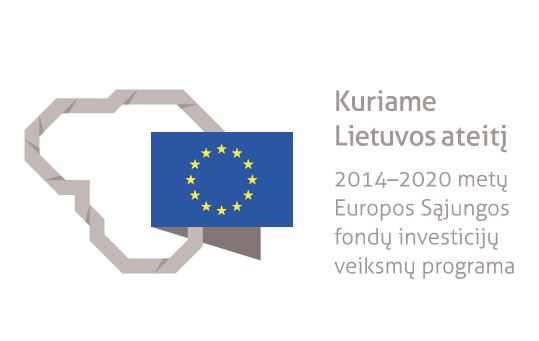

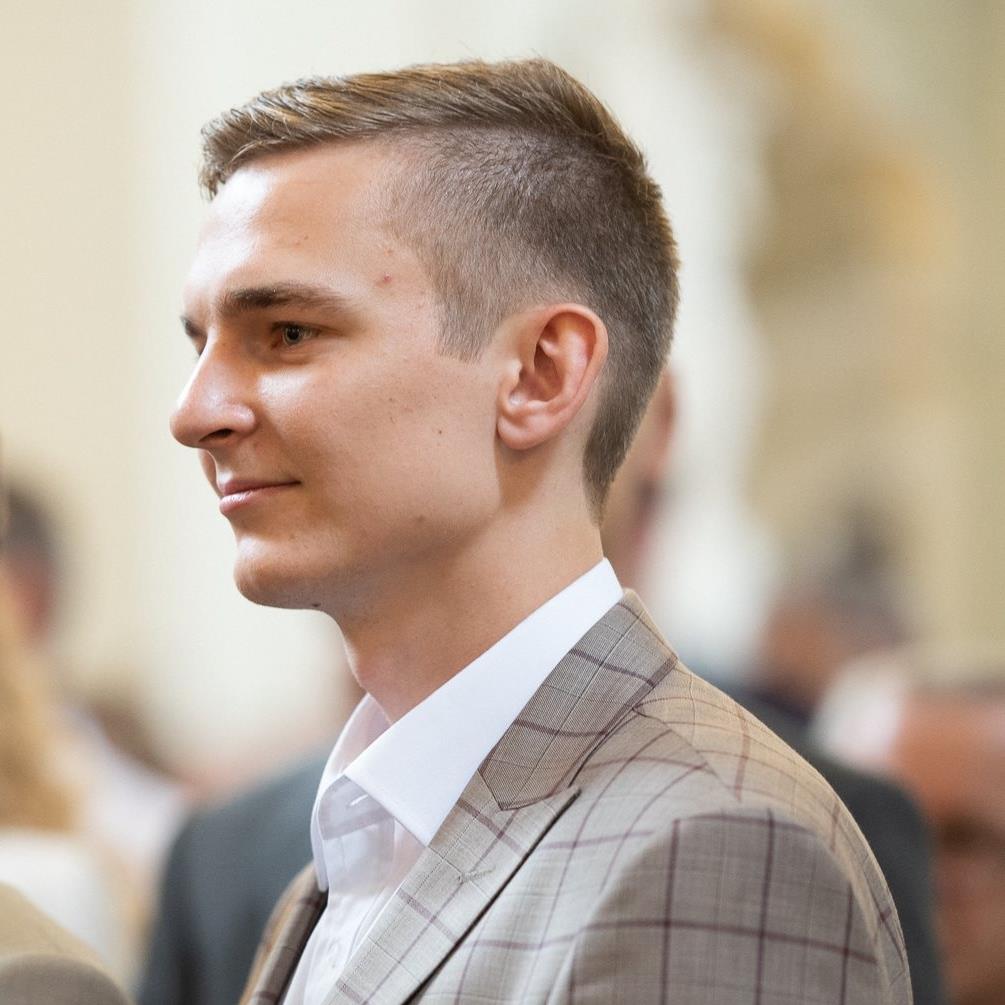 Simonas Draukšas
Simonas Draukšas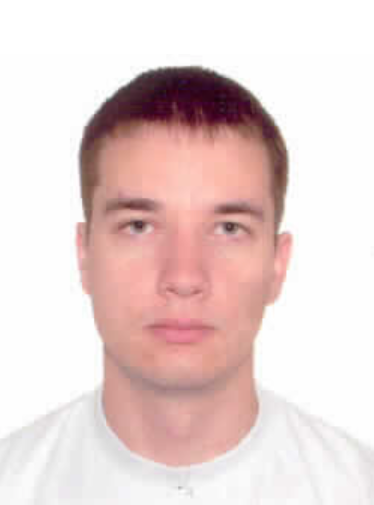 dr. Donatas Narbutis
dr. Donatas Narbutis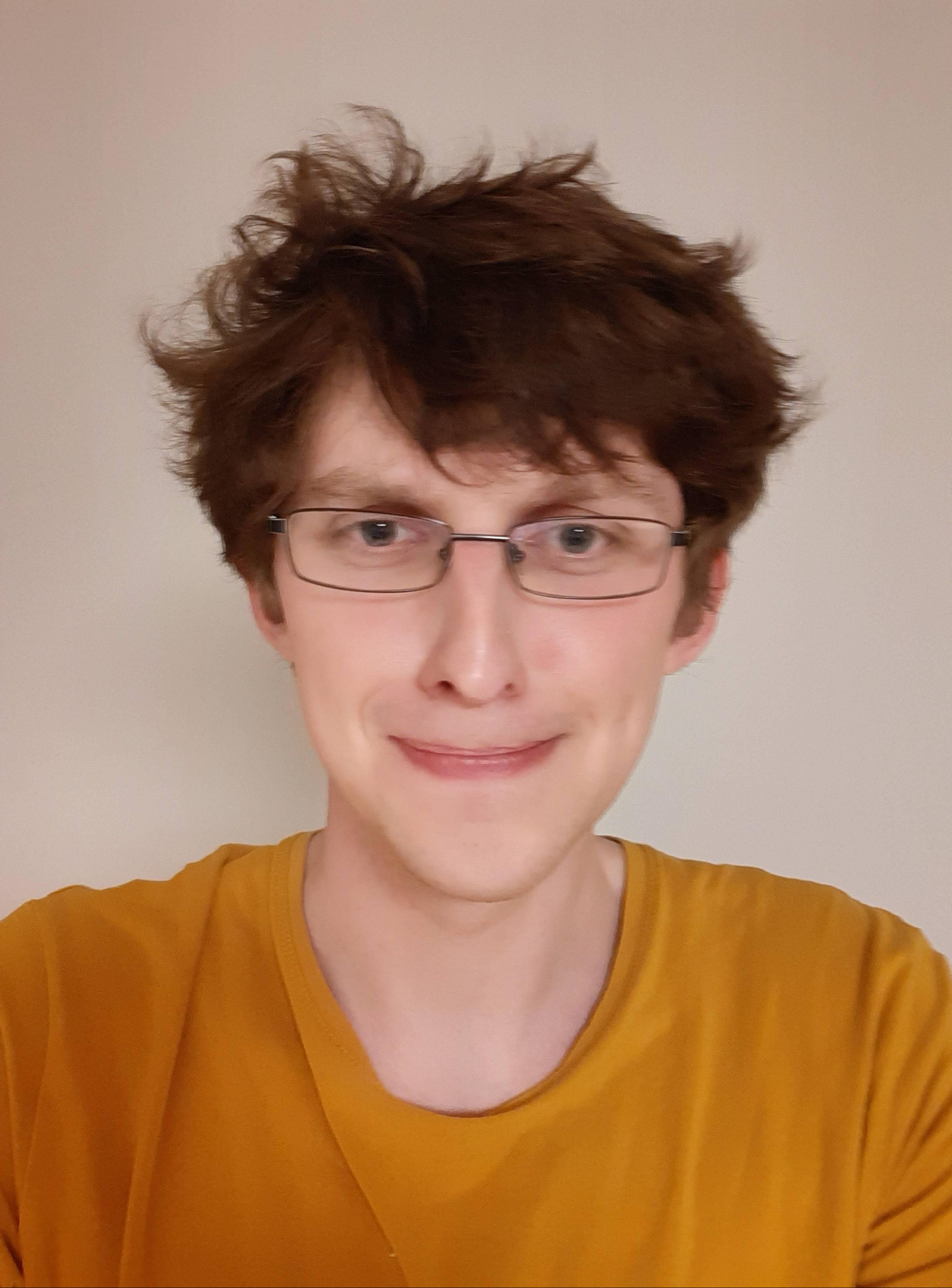 Giedrius Žlabys
Giedrius Žlabys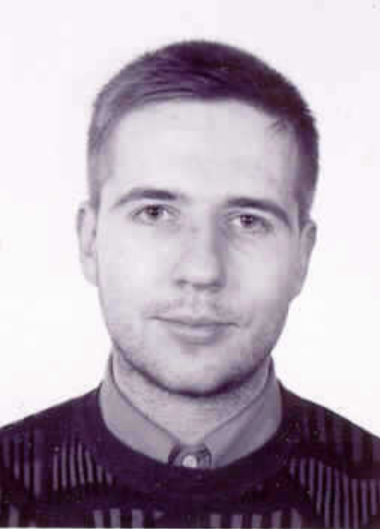 dr. Algirdas Mekys
dr. Algirdas Mekys